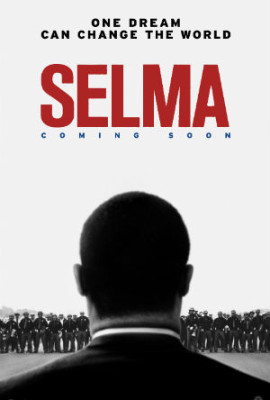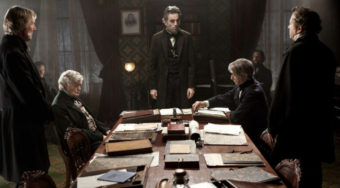Film Reviews

Selma
Genre: Drama
Director: Ava DuVernay
Cast: David Oyelowo, Tom Wilkinson, Cuba Gooding Jr, Alessandro Nivola, Giovanni Ribisi, Common, Carmen Ejogo, Lorraine Toussaint, Tim Roth, Oprah Winfrey
MPAA-Rating: PG-13
Release Date: January 9th, 2015
In the first scene of the new drama Selma, viagra sale Martin Luther King Jr. (MLK) is already a iconic figure in the civil rights movement. In fact, doctor he’s preparing to give a speech accepting his Nobel Peace Prize. At this point in his life, the 1964 Civil Rights Act , which legally ended segregation and racial discrimination at the voting booth, had already passed.
But despite that, director Ava DuVernay shows there was still much more work to be done to end discrimination. Laws alone can not change people, the film rightly argues. It takes much more.
David Oyelowo stars as King here but it’s a different MLK than the saintly one that many audiences are accustomed to. History books depict MLK as a great civil rights leader (which he was) but seldom depict him as a three-dimensional man caught in a moment of history who realized the powerful moment he was living in. He knew what he had to do to create real systemic change in our country. In the feature, he is depicted as a great speaker and a tremendous leader but he’s also depicted as a flawed husband who betrayed his wife. He’s also seen as a good man who, despite his international profile, wasn’t above taking out the trash.
Instead of focusing on everything that King was responsible for, screenwriter Paul Webb keenly focuses his eye on the civil rights protests in Selma that occurred as many Southern cities were undermining the 1964 Civil Rights Act and blocking voter registration for thousands of eligible voters. One such voter Annie Lee Cooper is depicted gracefully by Oprah Winfrey as a kind-hearted and hopeful woman whose determination to vote is undermined by the city clerk’s office, which makes her jump through hoop after hoop of bureaucracy before noting that she still isn’t eligible.
By focusing on these particular protests (and not on the whole movement), the filmmakers have room to build a fully-developed world of politics and people that set the stage for these important events. Despite the nobility of the protests, MLK was confronted by a variety of different people and personalities who didn’t want it to happen. The most obvious villains here are the Southern racists, especially the bigoted Alabama Governor George Wallace (Tim Roth). But it wasn’t just opponents of the Civil Rights Act that questioned King’s tactics.
There were also patriotic leaders in the Student Nonviolent Coordinating Committee who criticized MLK for using Selma as a national base for his fight for civil rights. The students may have believed in King’s values but they questioned his methods and argued that he would only fight for and remain in the community while the cameras were in town (an argument that King accepts has some validity to it).
There’s also President Lyndon Johnson himself (Tom Wilkinson), who may support King but who believes that other issues need to be handled beforehand. “The voting rights act is just gonna have to wait,” he says, unaware that the civil rights movement has no intention of slowing down.
Through it all, King was faced with one critic who oftentimes questioned what it was all for— King himself. In spite of his persuasive powers and his greatness, the film notes that King was constantly questioning the progress he and the civil rights movement were making. “One struggle ends just to go right to the next,” he says. In another scene, he confides to an associate that he’s worried about what would happen to the movement if he was killed (with all of the death threats he received and the assassination attempts he experienced, he knew that it was a real possibility).
“Man stands up only to be struck down,” he notes at one point, “what happens to the people he led?”
DuVernay does a brilliant job in bringing so many disparate elements together to show the struggles that King and the civil rights movement faced, even after a law was passed that was supposed to make racial discrimination a thing of the past. As a director, she shows that casting a light on one particular chapter in the civil rights movement can help serve as a microcosm of the entire movement itself.
Whenever she has the opportunity, she brilliantly focuses in on Oyelowo’s face as he’s giving a rousing speech but for most of the feature, she masterfully captures the complexity and the momentousness of the movement as a whole and shows that even now, there’s still much work to be done.
Review by: John Hanlon












